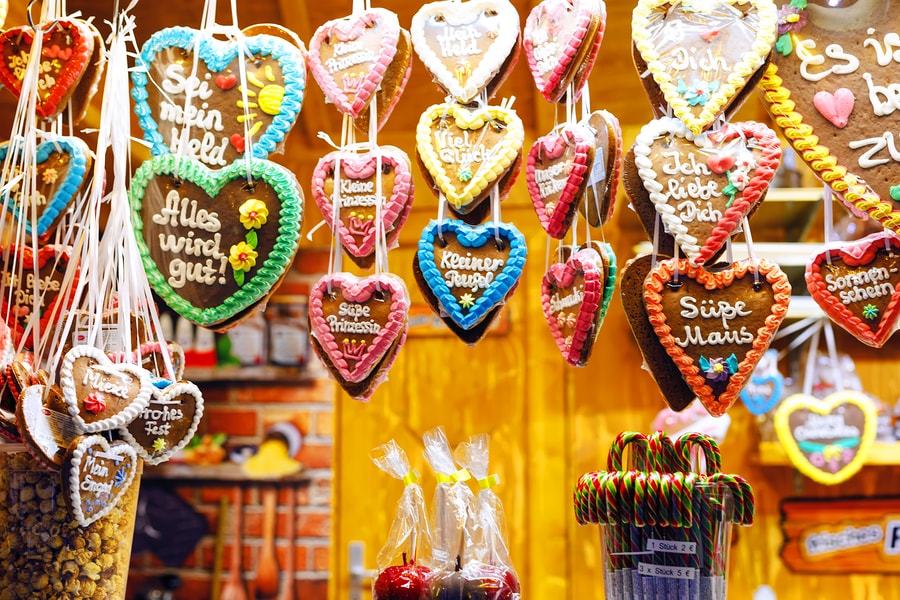It is already November and not long to go to yet another Christmas. If you’re travelling to an overseas country this Christmas you will need language tips to help you through the festive time. Of course, saying “Merry Christmas” in another language is a great way to integrate into the culture of the new country. But you have to be choosey which translator you use to do the translation.
Language Tips
1. You can’t depend on Google Translate to provide an accurate translation. A year or two ago Tesco used Google to translate its Christmas card into Irish and after thousands of the cards were printed it was found the translation was far from clear and even amounted to sheer gibberish.
2. Despite Britain and the United States appearing to be similar because they share the same language, it is surprising how different they are when it comes to word usage.
Take the examples of US and UK English below
| US English | UK English |
|---|---|
| Santa Claus | Father Christmas |
| Merry Christmas | Happy Christmas |
| The North Pole | Lapland |
3. Be mindful of cultural differences
Christmas as a commercial business opportunity has spread right around the world, even in places where Christianity as a religion (and Christmas is at least in part a religious celebration of the birth of Jesus Christ) is not essential. Even in nominally Christian countries, the traditions that have developed around the Christmas season are very varied.
An interesting example is the town of Demre on the Turkish Mediterranean coast. You can forgive the resident Turks for getting a little confused about Christmas. Saint Nicholas of Myra was a Greek who settled in the Roman city of Myra and his good deeds for local kids earned him a reputation for kindness and later, a sainthood. His kindly character was the basis of today’s Santa (Nicho) Claus. The Demre Turks make a living from promoting the ruins of Myra and even have a huge mural of Santa Claus on one of the buildings still standing, but come Christmas Day, it’s just another working day, as nearly everyone who lives around here is Muslim!
4. Enjoy the variations of Christmas that exist
If you get the chance to celebrate Christmas in any one of Europe’s different cultures, enjoy it. Although there are similarities, there are also important differences. Unfortunately, perhaps, the commercialism behind Christmas inherited first of all from the United States, has infected just about everywhere, but in private homes and city streets, local variations still exist. Understanding what is going on is part of the fun and you are sure to want to know what people are talking about when Christmas comes close. A standard dictionary may not be much use when it comes to translating Christmas messages, so do make use of any friendly local to let you into their secrets.
Here are some examples of how Christmas is uniquely celebrated elsewhere.
Krampus is the rather sinister companion to Santa Claus. He is a German creation but has become a sensation elsewhere in Europe over the last few years. Krampus is sort of an alter ego to Santa as he keeps a check on the behaviour of kids over the last year since the last Christmas season. The naughty kids don’t get too much favourable attention from Krampus and presumably he passes his assessments on to Santa.
Zwarte Piet is a Dutch equivalent to Krampus, but his character has become a lot more controversial, so much so that conversation about whether he is appropriate enough in the Netherlands may provoke some heated argument. Zwarte Piet, or “Black Pete” is a helper to Santa, or in Dutch, Sinterklaas, but his origin seems to be associated with the Dutch slave trade. The appearance of Zwarte Piet in Dutch towns has now become quite controversial with moves by many to remove what they feel is a backward oriented memory of racist times from parades. White supremacists and the vocal far-right have fiercely resisted any criticism of dressing up with black faces and exaggerated lips to represent poor old Black Pete.
Don’t forget Christmas as it is celebrated in the Southern hemisphere. With the seasons inverted, the mid-winter Christmas message and themes of Northern hemisphere Christmas are hard to sustain. Christmas in Sydney, Rio, or Durban may involve cooling off in the sea followed by a barbecue and a cold beer! Pity those who opt for the roast turkey and trimmings in 40-degree temperatures!
5. Learn some new words
If you have the chance to take part or at least observe just how Christmas is celebrated or promoted in different parts of the world, apart from the tinny supermarket music that seems to start blaring earlier and earlier. Many of the English Christmassy words originate further afield or have taken on new meanings. How about “wassailing?” A wassail used to be a hot drink made from cider mixed with some other ingredients. To go “wassailing” was to go singing around the neighbourhood, offering a drink of wassail when people showed up to thank the singers.
When people go “trolling” carols at Christmas, they don’t mean they go online and create mischief. To troll, as it was first meant to describe, was to sing merrily along.
And on that note, we will end this article and head off trolling along, sipping from a cup of wassail. Hope that Krampus doesn’t notice!




